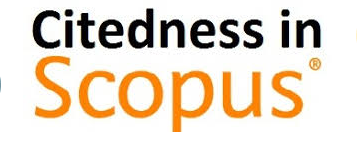A Comparison of Judicial Review in Indonesian Constitutional Court and French Constitutional Council
DOI:
https://doi.org/10.18196/iclr.v5i1.15127Keywords:
constitution, judicial review, judicial institution, political institutionAbstract
One of the advances in contemporary legal and governmental ideas to arise in the 20th century was the notion of establishing a Constitutional Court. A constitutional court is a high court that focuses on constitutional law issues. Its primary authority is to rule on whether laws that are reviewed are in fact in line with constitution or not. The purpose of this study is to compare the judicial review functions and institutional aspect of the Indonesian Constitutional Court with the French Constitutional Council. It explains the distinctions and similarities between the roles of the Indonesian Constitutional Court and the French Constitutional Council as judicial entities allowed to conduct judicial reviews of statutes in accordance with the constitution. The research method employed is library research, while the research approach is a statutory approach and a comparative approach. The study shows that the Constitutional Courts in France and Indonesia have certain similarities and differences that come from the issue of court’s authority, nature of decision, complainant party, and qualification and composition of justices.
References
Allan, T. R. (2013). The sovereignty of law: freedom, constitution and common law. Oxford University Press.
Asshiddiqie, J. (2018). Constitutional Adjudication and Democracy. Journal of Constitutional Justice, 5(2), 45-71.
Bell, J. (2005). French Constitutional Council and European Law. International & Comparative Law Quarterly, 54(3), 735-744.
Brouard, S., & Hönnige, C. (2017). Constitutional courts as veto players: Lessons from the United States, France and Germany. European Journal of Political Research, 56(3), 529-552.
Butt, S. (2014). Traditional land rights before the Indonesian constitutional court. Law Env’t & Dev. J., 10, 1.
Butt, S. (2015). Establishment of the Constitutional Court. In The Constitutional Court and Democracy in Indonesia (pp. 9-33). Brill Nijhoff.
Butt, S., Crouch, M., & Dixon, R. (2016). The first decade of Indonesia’s Constitutional Court. Australian Journal of Asian Law, 16(2), 1113-119.
Carp, R. (2013). On the Nature of the Romanian Political Regime. Reflections on the Recent Jurisprudence of the Constitutional Court. Studia Politica. Romanian Political Science Review, 13(3), 411-425.
Carrozza, P. (2017). Kelsen and Contemporary Constitutionalism: The Continued Presence of Kelsenian Themes. In Kelsenian Legal Science and the Nature of Law (pp. 75-98). Springer, Cham.
Castillo-Ortiz, P. (2019). The illiberal abuse of constitutional courts in Europe. European Constitutional Law Review, 15(1), 48-72.
Eddyono, L. W. (2016). The Unamendable Articles of the 1945 Constitution. Const. Rev., 2, 252.
Elven, T. M. A., & Al-Muqorrobin, S. A. (2020). Consolidating Indonesia’s Fragile Elections Through E-Voting: Lessons Learned from India and the Philippines. Indonesian Comparative Law Review, 3(1), 63-80.
Gamper, A., Delledonne, G., & Bussjager, P. (2021). A Centenary of Constitutional Review: The Austrian Legacy to Constitutional Courts in Europe. ZOR, 76, 309.
Gardbaum, S. (2014). Separation of powers and the growth of judicial review in established democracies (or why has the model of legislative supremacy mostly been withdrawn from sale?). The American Journal of Comparative Law, 62(3), 613-640.
Giera, U., & Lachmayer, K. (2016). The principle of effective legal protection in Austrian administrative law. In The Principle of Effective Legal Protection in Administrative Law (pp. 73-90). Routledge.
Ginsburg, T., & Versteeg, M. (2014). Why do countries adopt constitutional review?. The Journal of Law, Economics, & Organization, 30(3), 587-622.
Greene, J. (2014). The supreme court as a constitutional court. Harvard Law Review, 128(1), 124-153.
Grimm, D. (2015). The Democratic Costs of Constitutionalisation: The E uropean Case. European Law Journal, 21(4), 460-473.
Gunawan, Y., & Anggriawan, R. (2021). E-Court: The Future of Commercial Dispute and the Quality of Judicial Processes in Indonesia. In Handbook of Research on Disruptive Innovation and Digital Transformation in Asia (pp. 1-16). IGI Global.
Hendrianto, S. (2018). Law and politics of constitutional courts: Indonesia and the search for judicial heroes. Routledge.
Hosen, N. (2015). The Constitutional Court and’Islamic’Judges in Indonesia. Austl. J. Asian L., 16, 161.
Huda, N. M., Heriyanto, D. S. N., & Wardhana, A. F. G. (2021). The urgency of the constitutional preview of law on the ratification of international treaty by the Constitutional Court in Indonesia. Heliyon, 7(9), e07886.
Imbert, L. (2021). Endorsing migration policies in constitutional terms: the case of the French Constitutional Council. Eur. J. Legal Stud., 13, 63.
Irkliienko, A. (2020). Constitutional and Legal Status of the Constitutional Council of France. Law Rev. Kyiv UL, 138.
Jakab, A., & Bodnár, E. (2020). The Rule of Law, democracy, and human rights in Hungary: Tendencies from 1989 until 2019. In Rule of Law, Common Values, and Illiberal Constitutionalism (pp. 105-118). Routledge.
Kelsen, H. (2017). General theory of law and state. Routledge.
Kustra-Rogatka, A. (2013). The first preliminary questions to the Court of Justice of the European Union referred by Italian Corte Costituzionale, Spanish Tribunal Constitucional, and French Conseil Constitutionnel. Comparative Law Review, 16(2), 159-182.
Mérieau, E. (2016). Thailand’s deep state, royal power and the constitutional court (1997–2015). Journal of Contemporary Asia, 46(3), 445-466.
Nuer, K., & Hasan, F. (2021). Regulation of opposed parties in a conflict of authority between state institutions and the constitutional court of Indonesia. Journal of Legal, Ethical and Regulatory Issues, 24(2), 1-9.
Paulson, S. L. (2020). Hans Kelsen as outlier: The defence of a radical norm theory. In Contemporary Perspectives on Legal Obligation (pp. 54-67). Routledge.
Plaituka, S. B. (2016). Constitutional Complaint Dalam Rangka Penegakan Hak Asasi Manusia di Republik Indonesia. Jurnal Media Hukum, 23(1).
Robert-Cuendet, S. (2022). Investor-state dispute settlement and French constitutional law: The Conseil constitutionnel'’s decision of 31 July 2017 on CETA. In International Investment Protection and Constitutional Law (pp. 119-148). Edward Elgar Publishing.
Satriawan, I., & Mokhtar, K. A. (2015). The Constitutional Court's Role in Consolidating Democracy and Reforming Local Election. Const. Rev., 1, 103.
Satriawan, I., & Mokhtar, K. A. (2019). The Role of Indonesian Constitutional Court in Resolving Disputes among the State Organs. Hasanuddin Law Review, 5(2), 159-179.
Satriawan, I., & Mokhtar, K. A. (2020). Democratic Transition and Constitutional Justice: Post Reformasi Constitutional Adjudication in Indonesia. IIUM PRESS.
Skach, C. (2007). The “newest” separation of powers: Semipresidentialism. International Journal of Constitutional Law, 5(1), 93-121.
Stone, A. (2014). Where judicial politics are legislative politics: The French Constitutional Council. In Judicial Politics and Policy-Making in Western Europe (pp. 29-49). Routledge.
Thornhill, C. (2020). Constituent power and european uropean constitutionalism. In Routledge Handbook of Comparative Constitutional Change (pp. 277-293). Routledge.
Tinambunan, H. S. R. (2016). Reconstruction the Authority of Constitutional Court on Impeachment Process of President and/or Vice President in Indonesian Constitutional System. Jurnal Dinamika Hukum, 16(1), 71-78.
Wantu, F. M., & Ismail, D. E. (2022). Constitutional Dialogue In Judicial Review At The Indonesian Constitutional Court: The Future Prospects. Journal of Legal, Ethical and Regulatory Issues, 25, 1-8.
Zoller, E. (2018). French Constitutionalism. Henri Capitant Law Review (Special issue, 2018).
Downloads
Published
Issue
Section
License
By publishing with Indonesian Comparative Law Review, authors agree to the following terms:
1. Authors retain the copyright to their work and grant Indonesian Comparative Law Review the right of first publication, while also licensing the work under a Creative Commons Attribution License (CC BY 4.0). This license permits others to share the work, provided they acknowledge the author and the initial publication in this journal.
2. Authors may enter into separate agreements for non-exclusive distribution of the published version of their work, such as posting it to an institutional repository or including it in a book, with acknowledgement of its initial publication in this journal.
3. Authors are encouraged to share their work online, for example on institutional repositories or personal websites, both before and during the submission process. This practice can lead to productive exchanges and increased citation of published work.



